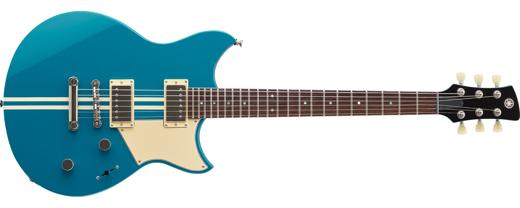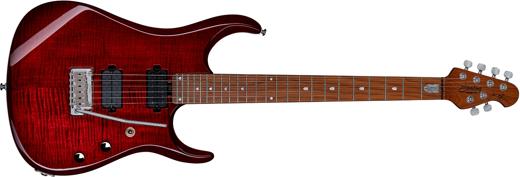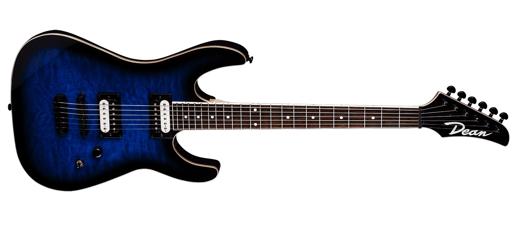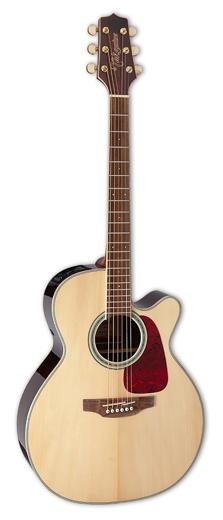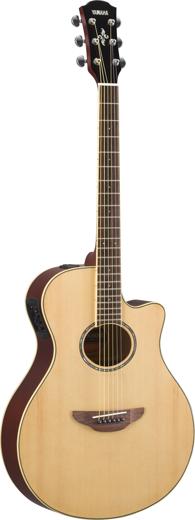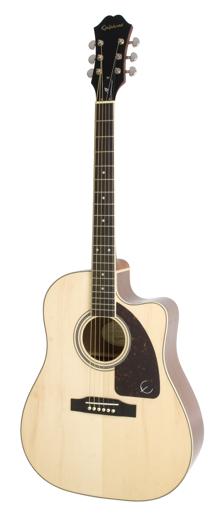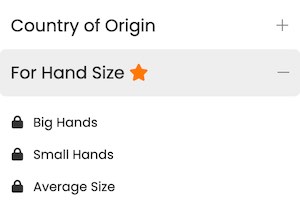Ibanez AEWC400 Overview and Best Prices
- 4 Prices - New from $599.99 >
- From Ibanez's 2018 AEW series
- Made in Indonesia
- 6 strings
- 25"'' scale
- 15.748" Fretboard Radius
- Flamed Maple top
- Flamed Maple top
- Flamed Maple back
- Flamed Maple sides
- Nyatoh neck
- Walnut fretboard
- Bridge pickup: Fishman S-Core (Preamp/Active)
- Walnut AEWC original top loading bridge
- Acoustic AEWC Asymmetric comfort Set neck
- 20 Medium frets
- Ibanez tuners
- Weight between 4.75lbs (2.2kgs) and 4.875lbs (2.2kgs)
- See all specs and compare >
Our Scores and Tone Evaluation
- Heavy Metal
- Hard Rock
- Jazz
- Blues
- Funk
- Country
Ibanez AEWC400
- Expensive Wood
- Top Brand Pickups
- Electronics
- Cheap Fret Wire (NS)
- No Locking Tuners
- Made in Indonesia
- No High-Quality Nut
- Low-Quality Material Saddle
- Laminated Top Wood
- Laminated Side Wood
- Laminated Back Wood
- No Compound Radius Fretboard
- No 21:1 Tuner Ratio
- No Strap Lock
Price Overview
Its average competitor's price is $330, which means that the Ibanez AEWC400 costs around 82% more than the competition. It might be due to it having additional features, but know that you can find cheaper similar alternatives. This takes into account all instruments of the same category in our database with 6 strings and Fixed bridge that are made in Indonesia.
These are affiliate links. We may earn a fee if you purchase after clicking. These prices are prone to error. Make sure you're buying the right product after clicking on a link from our site. We are not liable if you buy the wrong product after following these links. As an Amazon Associate site we earn from qualifying purchases.
User Feedback
Not all instruments are created equally. That's why it's important to have different opinions. Here's what our users who have played this instrument say. If you've played it before, help others by voting below!
Weight
VoteTuning stability
VoteNeck speed (thickness)
VoteNeck access to high frets
VoteNeck profile shape
VoteFret edges
VotePickups noise
VotePickups power
VoteUser Reviews
Videos










Often Compared With
Playability
The Ibanez AEWC400 meets 4 out of our 8 criteria items for beginner friendliness, which means that it's not bad for beginners, but it could be better. This takes into account the type of frets, scale length, nut width, bridge type, fretboard radius, and neck profile to determine the easiest combination for new players to get used to.
New Player Friendliness
Ibanez AEWC400- Comfortable shape
- Easy-to-use bridge
- Tall frets
- Comfortable neck
- Comfortable fretboard
- Narrow nut
- Short scale
- Soft Strings
- Locking tuners
Hand Size Comfortability
After taking into account the neck profile, scale size, fretboard radius, and nut width, we can conclude that the Ibanez AEWC400's construction favors people with relatively small hands.
Nevertheless, this comes down in the end to personal preference. Make sure you test this guitar—or another one with similar characteristics—before buying.
How Lightweight is it?
We found that the Ibanez AEWC400 weighs between 4.75lbs (2.2kgs) and 4.875lbs (2.2kgs). This was recorded from some online retailers that publish the weight of the instruments they sell.
Scale Length
Scale length is the distance the strings will span between the bridge and the nut. It can tell you a lot about the overall playability and tone of the instrument. A longer scale length means longer distance between frets, brighter tone and more string tension—which means lower action, but more difficult bending of the strings.
Here's the Ibanez AEWC400's 25" scale length compared to other common sizes:
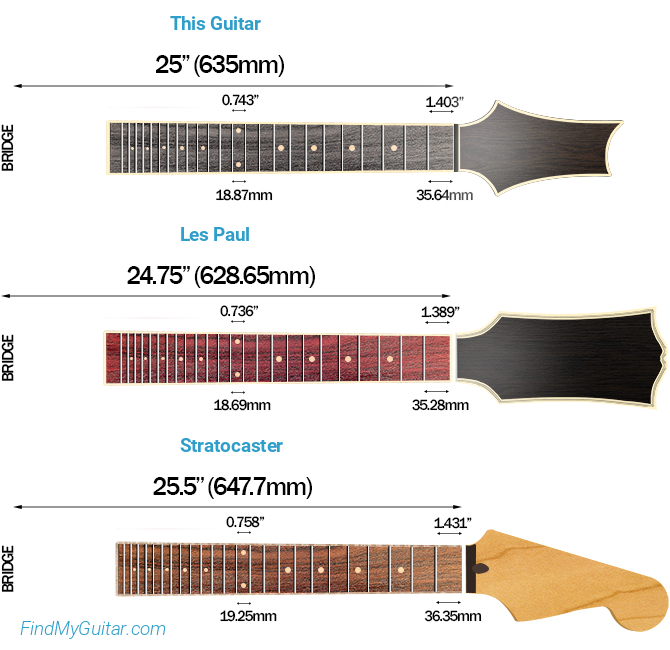
This is the scale found in most PRS guitars, and it's right between the length of most Stratocasters and Les Pauls.
The scale length will affect the separation of the frets, the string tension, and even the tone of the guitar. The longer the scale, the more separated the frets are, which makes it a bit harder to move fast on the fretboard. Also, the higher tension of the strings will make them feel stiffer, so bending will require more strength. However, a longer scale also allows you to lower the action of the strings and make them closer to the fretboard, which makes them easier to press. Finally, the tone will also sound brighter with a longer scale.
A 25'' scale makes all of this feel right between a Stratocaster (longer scale) and a Les Paul (shorter scale).
Don't forget that you can also affect the tension of the strings by changing your string gauge.
Neck Profile

The neck profile tells you the thickness (neck depth) and shape in cross section. Every difference will completely change the feeling and comfortability of the neck. This is a highly subjective thing, but most players indeed prefer certain types of necks (like Cs and Ds) because they feel nice in most hands.
The Ibanez AEWC400's neck thickness is approximately 0.787'' (20mm) at the first fret, and 0.827'' (21mm) at the twelfth.
These measurements were taken either from the official Ibanez website, or, in case this information wasn't provided, by researching multiple online marketplaces and forums where owners of this model have posted their measurements.
It has a Asymmetrical type neck. The shape is Asymmetrical. Even though it looks like a poorly-made job, it's, in fact, the shape that most naturally adapts to the arc that your hand makes when grabbing a guitar neck. You'll notice that the lower part of your palm makes a more pronounced, deeper curve while the upper part makes a more subtle arch. This is the shape that adapts the best to that natural shape of your hand.
Fretboard Radius
When it comes to fingerboard radius, personal preference will dictate which one is better for you. However, most people seem to agree that a more curved (lower) radius will make it easier to play chords while a less curved (higher) radius is better for soloing and bending.
The Ibanez AEWC400 has a 15.748" fingerboard radius.
Here's an image comparing this fretboard radius to other popular choices:

Compound radius fingerboards give the best of both worlds. Unfortunately, the Ibanez AEWC400 has the same radius across the board.
Playability compared to main competitors
Nut Width
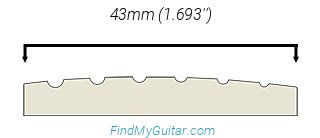
The Ibanez AEWC400 has a nut width of 43mm (1.693''). This is within the most common range of nut widths for a 6-string guitar. It offers a good balance of string separation at the nut. It's the size that most guitarists prefer as it gives them just enough space to play open chords without muting the strings, but without spreading the strings too wide and making bar chords difficult to perform.
Frets
It comes with nickel silver frets, so they won't last as long as stainless steel frets. If you use your instrument a lot, you might need to replace the frets after a few years. But this is unlikely as most people change instruments before this happens.
Fret Size

Finally, let's talk about fret size. Some people prefer tall frets because it's easier to press the strings and perform bends since there's less friction against the fretboard. On the other hand, some people like shorter frets because they like to touch the fretboard when playing, or because they got heavy hands and tend to press too much on the string and alter the of the note pitch accidently.
The Ibanez AEWC400's frets are Medium size. With medium frets, you can feel the fretboard more than with jumbo frets, but it's still easier to press the strings cleanly than with small frets; notes might change their pitch just slightly if you press hard on the fret. Also, if you need to do some fret leveling after years of playing, you'll have some room to sand them down without having to replace them.
Playability Score
Tone
The type of wood and even the shape of the body will have a lot of influence in the final tone of an acoustic guitar. Here's we'll talk about what kind of tone you can expect from its specs.
Wood
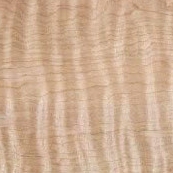
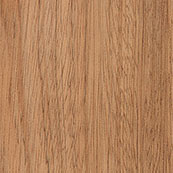

Flame Maple Top, Back and Sides: This wood has beautiful patterns only found in specific types of maple.
Nyatoh Neck: It's a wood type found mainly in Indonesia. It's fairly hard and durable and is becoming popular for building guitars because it isn't expensive.
Walnut Fretboard: It's a hard wood with a chocolate color that is often used to give an elegant finish. Since it's quite expensive and rare, it's mostly used for guitar tops.
Pickups
This guitar comes with pickups from one of the top brands: Fishman. So you can expect well built pickups with great sound that shouldn't need an upgrade anytime soon.
Sound Score
Build Quality
Country of Origin
Knowing where the instrument is produced is a good way to know how well it's built. Some manufacturing countries are known for having higher quality standards. For example, most expensive instruments are made in the US or Japan, but there are some exceptionally great countries—like South Korea—that are building a good reputation.
The Ibanez AEWC400 is made in Indonesia. Many people prefer the quality of an Indonesian guitar over a Chinese. Respectable brands like Epiphone, Ibanez and Schecter are building in this country because of the great quality and lower price. Some people like to compare them to the ones built in Japan during the 80s, when Japanese guitar makers made a name for themselves.
Still, remember that we're taking about Ibanez here, which is a brand with good renown. They know how to use cheap labor in this country without sacrificing too much quality. So you shouldn't end up receiving a useless or ugly instrument.
Bridge
Walnut AEWC original top loading: The advantage of fixed bridges is that they don't require any kind of set-up. This makes it extremely easy when changing strings because you don't need to adjust anything besides tuning the guitar. Also, the fact that the bridge is directly attached to the body will help to increase sustain. The disadvantage is the lack of versatility since you can't create the same vibrato effects as with tremolo bridges.
Nut Material
Another important thing to analyze is the nut material, as it's one of the most important aspects that can affect the sound and playability of your guitar. A well-cut nut will make sure it stays in tune and will make it more comfortable to play.
In this case, the Ibanez AEWC400 has a Plastic nut. This is a low-quality nut that you might want to consider upgrading soon. Bone and TUSQ nuts are the best for guitars with a fixed or simple tremolo bridge.
